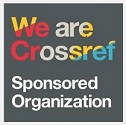The Urgency Of Establishing Sharia Economic Law (Omnibus Law) In Increasing Sharia Economic Development In Indonesia
DOI:
https://doi.org/10.33474/hukeno.v7i1.20058Keywords:
Urgency, Sharia, Economic, Omnibus LawAbstract
The non-maximum development of Indonesia's shari'ah economy has become a joint work for the Government, KNEKS, and Muslims in Indonesia. Based on data quoted from GIEI (Global Indicator Economic Islam), Indonesia is in sixth place in the finance sector under Kuwait and the United Arab Emirates, second in the halal food sector under Malaysia, not in the top 10 in the travel sector, third in the fashion sector, not in the top ten in the pharma & cosmetics sector, and not in the world's top 10 in the media and leisure sector. Even though Indonesia is a country that has the largest Muslim population in the world, it means that this country has great potential to develop more rapidly. In the opinion of researchers, the most fundamental problem is the not-yet optimal development of the shari'ah economy in Indonesia, namely because there are still many regulations that overlap with each other, and many sectors still need to be appropriately covered. The findings of the authors, currently Indonesia only has four rules at the level of laws governing the Islamic economic sector, namely the Islamic banking law, the Islamic capital market law, halal food and beverages, and ZISWAF (Zakat Infaq Shodaqoh Wakaf). Many sectors have yet to be well covered, such as Sharia financing, export financing, and pensions. Accordingly, the function of the CIPTAKER law is to harmonize one regulation with another and cover sectors that need to be appropriately regulated. The formation of the Sharia Economic Law using the omnibus law concept is believed to enhance the development of the Sharia economy in Indonesia. The results of this study indicate that the presence of a shari'ah economic law using the omnibus law concept has a critical urgency in increasing the shari'ah economy in Indonesia, particularly in aligning the shari'ah econnomic sector, which has not been integrated and comprehensively regulating the shari'ah economic sector which has not been completely held.; Omnibus Law.
Keywords: Urgency, Sharia, Economic, Omnibus Law
References
Aceh, Pemerintah Daerah. “Qanun Aceh Nomor 11 Tahun 2018.” Aceh, 2019.
Anggono, Bayu Dwi. “Peluang Adopsi Dan Tantangannya Dalam Sistem Perundang-Undangan Indonesia.” RechtsVinding 9, no. 1 (2020): 17–37.
Arief, Anggreany, and Rizki Ramadani. “Omnibus Law Cipta Kerja Dan Implikasinya Terhadap Konsep Dasar Perseroan Terbatas.” Al-Adalah: Jurnal Hukum Dan Politik Islam 6, no. 2 (2021): 106–20. https://doi.org/10.35673/ajmpi.v6i2.1550.
Huda, Muhammad Nurul, Hammam Hammam, Suranto Suranto, and Herdin Arie Saputra. “Muhammadiyah Constitution Jihad Movement: A Case Study of the Omnibus Law on Job Creation.” Ijtihad : Jurnal Wacana Hukum Islam Dan Kemanusiaan 21, no. 2 (2021): 177–96. https://doi.org/10.18326/ijtihad.v21i2.177-196.
Khalid, Afif. “Penafsiran Hukum Oleh Hakim Dalam Sistem Peradilan Di Indonesia.” Al-Adl : Jurnal Hukum 6, no. 11 (2014). https://doi.org/10.31602/al-adl.v6i11.196.
Kholis, Nur. “Potret Perkembangan Dan Praktik Keuangan Islam Di Dunia.” Millah: Jurnal Studi Agama XVII, no. 1 (2017): 1–30. https://doi.org/10.20885/millah.vol17.iss1.art1.
Laldin, Mohamad Akram, and Hafas Furqani. “Islamic Financial Services Act (IFSA) 2013 and the Sharīʿah-Compliance Requirement of the Islamic Finance Industry in Malaysia.” ISRA International Journal of Islamic Finance 10, no. 1 (2018): 94–101. https://doi.org/10.1108/IJIF-12-2017-0052.
Musyafah, Aisyah Ayu. “Perkembangan Perekonomian Islam Di Beberapa Negara Di Dunia.” Diponegoro Private Law Review 4, no. 1 (2019): 419–27.
RI, Pemerintah. Undang-Undang Nomor 23 Tahun 2011 Tentang Pengelolaan Zakat (2011).
Undang-Undang Nomor 33 Tahun 2014 Tentang Jaminan Produk Halal (n.d.).
Undnag-Undang Nomor 2 Tahun 2022 Tentang Cipta Kerja (n.d.).
Setiadji, Wicipto. “Simplifikasi Regulasi Dengan Menggunakan Metode Pendekatan.” Recthsvinding 2020, no. 01 (9AD): 39–52.
State of the Global Islamic Economy Report. “State of the Global Islamic Economy Report.” DinarStandard, 2022, 1–40. https://haladinar.io/hdn/doc/report2018.pdf.
Syari’ah, Komite Nasional Keuangan. Kajian Konversi, Merger, Holding, Dan Pembentukan Bank BUMN Syari’ah. Jakarta: KNKS, 2009.
Downloads
Published
Issue
Section
License
Copyright (c) 2023 Hardi Fardiansyah, Rio Christiawan, Tuti Widyaningrum

This work is licensed under a Creative Commons Attribution 4.0 International License.
Jurnal Hukum dan Kenotariatan issued by the Postgraduate Notary Masters Program at the Universitas Islam Malang apply the Copyright and License provisions under Lisensi Creative Commons Atribusi 4.0 Internasional.


.png)














